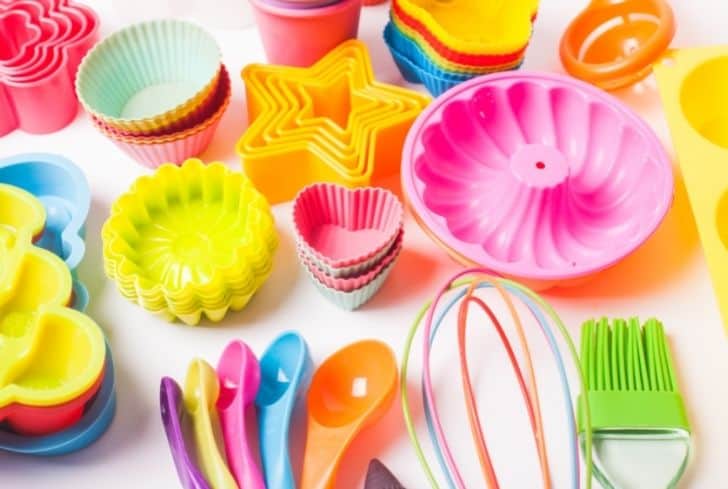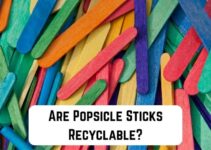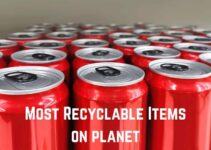Silicone is one of those materials that form the basis of modern life. Therefore, it can be regarded to be amongst those materials that we use in our daily living and activities without really being aware.
There are several reasons why silicone as a material is quite important and thus popular. For one, it is very strong and can withstand harsh and extreme external conditions. One of those conditions is extreme heat. It has been noted that silicone is one of those materials that are most resistant to heat. You can get as high as 305°C of temperature (an exceedingly great amount of heat by any measure), and yet silicone will still withstand it.
Furthermore, silicone is known to be very hygienic. You may have wondered why a lot of kitchen utensils have their raw materials being silicone? You don’t have to wonder anymore. The main reason is the highly clean, smooth, and hygienic properties of the silicone material. In addition, silicone rubber has been known not to be porous.
However, there are still some concerns regarding silicone. Is it safe for the environment? More importantly, is it recyclable? Here, we answer all of the questions you might have regarding this.
Can You Recycle Silicone?
We all can agree that silicone is one of the best materials you can make use of. For one, silicone is known to be strong and highly resistant to various forms of wear and tear, especially extreme heat. Then it is known to be hygienic and clean, and therefore safe for various uses, including for food and beverages.
Furthermore, it has also been noted that silicone is quite versatile. Silicone is applicable in products ranging from lubricants to adhesives, electrical and electronic installations, and even medicines. It can also exist in a fairly wide variety of formats. For example, silicone oil, silicone resin, silicone grease, silicone caulk, and many others.
However, amid all these benefits and multiple use cases, what happens when you no longer need the silicone. This may be because it has been used for quite a long period and may no longer properly serve the purpose you acquired it. It might also be because it has developed some faults or has got damaged. Nevertheless, you start to think of how to dispose of it.
Several options might appear obvious for you to dispose of the silicone material, and one that frequently comes up is recycling. Recycling, in particular, is fast becoming an option due to the increasing and growing concern and consciousness for issues relating to the environment. However, the fact is that you can recycle not all products. This is largely due to the materials and components they were made up of.
However, silicone is known to be recyclable. In fact, it has been noted that you can recycle silicone multiple times after use. This is because the recycling process is not complex. It does not involve complex industrial and chemical processes that we have with other materials.
You can conduct domestic recycling of silicone right from your home if you have the right tools. Thus, you do not need to send your old silicone to a manufacturing plant, as you can carry out the process on your own.
The recycling process for silicone typically involves you grinding the old silicone into some fairly fine material. Then you might have to mix it with some fresh silicone material and then use it to create several products based on rubber.
This offers a whole lot of benefits to you:
- You can convert your old silicone to good uses without having to throw them out.
- You get to save considerable amounts that you would rather have spent acquiring the newly formed silicone material.
- You will be doing some greater good by not contributing what would have otherwise been waste material to the environment.
Is Silicone Biodegradable?
With growing concern and consciousness about issues relating to the environment, we must start to incorporate a lifestyle that demonstrates that concern. For instance, we can make the environment better by making materials that are friendly to the environment. But, unfortunately, the fact is that a lot of the products we use in our daily living do not improve the environment.
In fact, some of them cause harm to the environment. This is largely due to the fact the materials they are made with are not natural. As such, they find it hard to decompose into the environment safely. In essence, such materials are not biodegradable.
Biodegradable materials decompose easily and do not release potentially harmful chemicals into the environment. On the other hand, non-biodegradable materials, which are made from mostly synthetic products, usually take several years to decompose properly. In all those times, they are likely to have released such toxins into the environment.
Unfortunately, one of such products that are mostly non-biodegradable and contain those harmful components is plastic. This is why there are growing campaigns for you to either reduce your use of plastic or to ensure anyone you use is recycled.
However, what about silicone? The fact is that silicone is not biodegradable. Silicone is made of a combination of synthetic rubber mixed with synthetic plastic. As we know, it takes quite some time for the plastic to break down.
This is the same case with synthetic rubber. However, silicone takes this to a whole new level. It has been seen that got silicone to become broken down; a very long period may pass. The process may take as long as several decades.
This is because silicone is highly durable and resistant to most forms of external causes of wear and tear. In addition, it can withstand both biological and chemical pressure that may want to bring about a breakdown.
Is Silicone Environmentally Friendly?
This is quite a tricky question. This is because even though the material is not biodegradable, it does not necessarily translate to the fact that it is not environmentally friendly.
Although silicone is not biodegradable, it is also not essentially harmful to the environment. So depending on the way it is perceived, although it is not directly bringing any benefit to the environment, it is also not causing harm to it, at least not directly.
Unlike other materials such as plastic, it takes quite a long period for silicone to decompose. Silicone is known to be one of the strongest material components you can find around. It is known to withstand extreme heat.
Also, getting exposed to different chemical and biological components does not necessarily have any effect on silicone. For instance, even if exposed to light, silicone has been known to maintain stability. Even in chemical environments like in saline conditions, it still did not break down.
For it to decompose, there must be a lot of external pressure applied, as it is quite difficult for it to biodegrade naturally.
This may be a good thing in the sense that silicone does not easily harm the environment. In addition, it is resistant to breakdown, so it does not get to release its toxic content to the environment that may harm humans, wildlife, and the larger natural ecosystem.
Furthermore, a huge challenge that we all face with most of these chemical-based materials is that they have the potential to be toxic. This is because the level of toxic content in most of these materials is somewhat high.
Thus, especially after some use, such materials or products experience leaching, and the toxic content in them starts to be exposed. These are usually highly harmful to humans who get exposed to such toxins.
It becomes even worse if they use such products for things relating to food or beverage, such as transporting water into the home. Apart from this, their mere presence in the environment poses a lot of risk to environmental safety.
Silicone does not have any of those problems. In addition, since it is chemically stable, you don’t get to experience the release of harmful toxins that happens with most other materials.
However, although it may take countless years on end, silicone will likely still eventually become decomposed. When this happens, it will then release its contents to the general environment. Still, many studies have found out that most of the component chemicals in silicone are not as harmful as those in comparable products. Thus, we can say; comparatively, silicone is a lot friendly to the environment.
Is Silicone Better Than Plastic?
While silicone and plastic may be used for many the same purposes, they also serve a wide range of different uses. However, we can still make some comparisons between them.
Based on how environmentally friendly they are, we can say that the silicone does a much better job. For instance, silicone is much stronger than plastic. It is also highly resistant to external chemical and mechanical factors and can withstand extreme conditions like heat.
However, plastic does not do so much in this regard, and leaching can occur easily. Also, plastic easily releases its harmful components when disposed of. However, silicone can withstand breakdown for a very long time.
When we consider their levels of safety for humans, we can also give them to silicone. Silicone hardly experiences leaching, and as such, your food or beverage cannot become contaminated with chemicals. This makes silicone highly appropriate for food vessels and cooking utensils. However, plastic can become leached somewhat easily.
How Do You Dispose of Silicone?
When you are no longer in need of silicone material, there are several ideas about how to go about disposing of them.
Recycling It
Here, there are no “best ideas.” However, recycling is one very good idea. Silicone takes a very long time to decompose, and thus, it is not a good idea to bury it. Instead, it is advisable to keep silicone around for as long as possible.
Thus, it is best to recycle them. Fortunately, the process of recycling is not that complex or technical as you can try them right at home.
Repurposing It
Do you want a lot of fun while also doing something engaging and productive? Then, you should consider repurposing your old silicone. There are a lot of interesting products that you can make out of silicone, all by yourself. The interesting thing is that you might not be needing so much material for most of them, as you most likely have them already.
Examples of products that can be made out of old silicone include:
- Baking mats
- A lunch tray
- Little coral items
- Bath and beauty products
Conclusion
By every standard, silicone is an amazing material. Unlike most other comparable materials, it is surprisingly much more friendly to the environment. In addition, it lasts much longer and is versatile.
However, when silicone becomes old, what do you do with it? We have provided answers to this question and more in this comprehensive piece.






